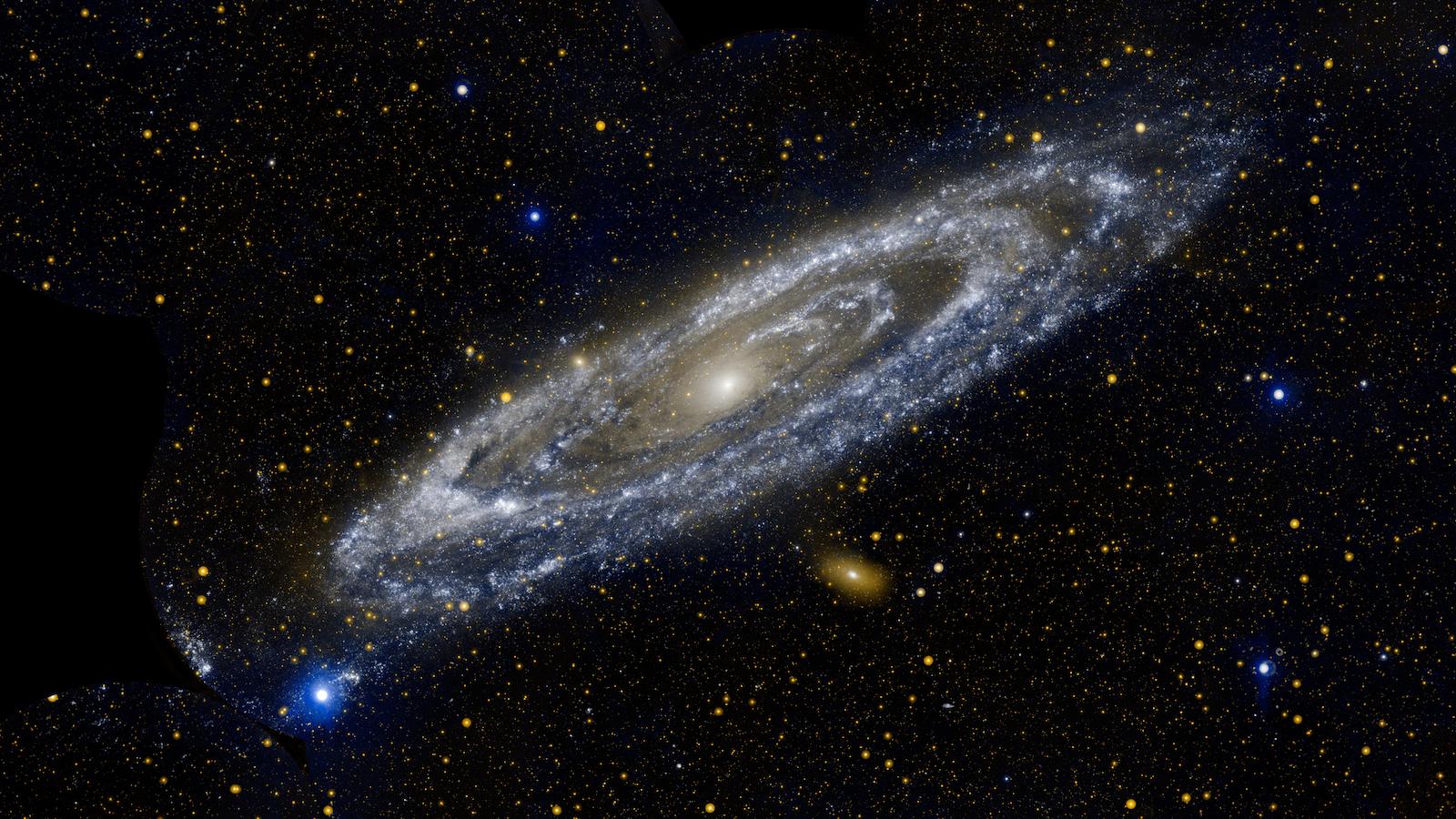
Kristina Killgrove
Kristina Killgrove is a staff writer at Live Science with a focus on archaeology and paleoanthropology news. Her articles have also appeared in venues such as Forbes, Smithsonian, and Mental Floss. Kristina holds a Ph.D. in biological anthropology and an M.A. in classical archaeology from the University of North Carolina, as well as a B.A. in Latin from the University of Virginia, and she was formerly a university professor and researcher. She has received awards from the Society for American Archaeology and the American Anthropological Association for her science writing.
Latest articles by Kristina Killgrove

Remnants of spills on Renaissance-era textbook reveal recipes for 'curing' ailments with lizard heads and human feces
By Kristina Killgrove published
A novel biochemical analysis of a Renaissance medical text has successfully recovered centuries-old proteins that might be from lizards and hippos.
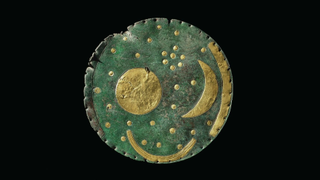
Nebra Sky Disc: The world's oldest depiction of astronomical phenomena — and it may depict the Pleiades
By Kristina Killgrove published
The unique bronze-and-gold Nebra Sky Disc appears to represent what the night sky looked like more than three millennia ago.
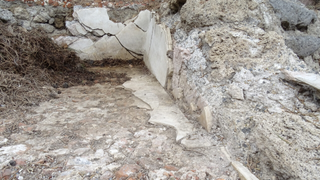
Romans regularly soaked in filthy, lead-contaminated bath water, Pompeii study finds
By Kristina Killgrove published
A study of limescale buildup in an early bathing facility at Pompeii has revealed that the water was replaced only once per day.
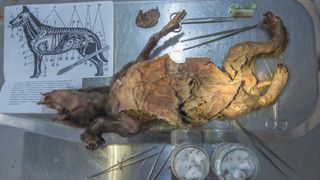
Woolly rhino flesh pulled from ancient wolf stomach gives clues to ice age giant's extinction
By Kristina Killgrove published
More than 14,000 years ago, a wolf pup ate a piece of woolly rhino. Scientists have analyzed the rhino's DNA to figure out why it went extinct.
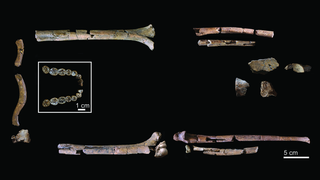
Most complete Homo habilis skeleton ever found dates to more than 2 million years ago and retains 'Lucy'-like features
By Kristina Killgrove published
Scientists have revealed the most complete skeleton yet of our 2 million-year-old ancestor Homo habilis.
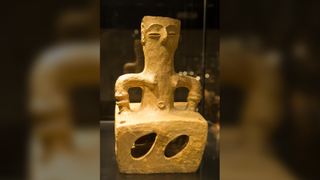
Tumba Madžari Great Mother: A boxy goddess figurine from North Macedonia designed to protect Stone Age houses 7,800 years ago
By Kristina Killgrove published
Stone Age people in Macedonia created goddess figurines whose bottom half was a house.
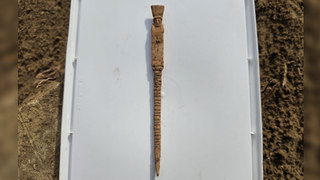
Dionysus and his erect penis depicted on 2,500-year-old bone stylus found in Sicily
By Kristina Killgrove published
Archaeologists in Sicily found a unique writing implement featuring a grumpy-faced god and his erect penis.
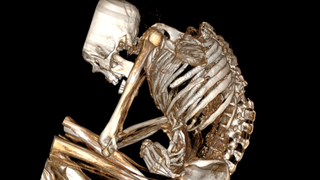
1,100-year-old mummy found in Chile died of extensive injuries when a turquoise mine caved in, CT scans reveal
By Kristina Killgrove published
The mummified remains of a man buried close to a turquoise mine in Chile's Atacama Desert suggest he was a miner who died in a tragic occupational accident.
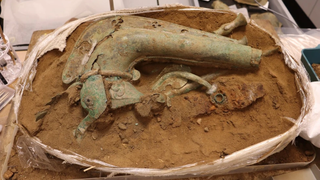
Rare 2,000-year-old war trumpet, possibly linked to Celtic queen Boudica, discovered in England
By Kristina Killgrove published
Archaeologists have announced their discovery of a metal hoard that contained an extremely rare example of a Celtic battle trumpet.
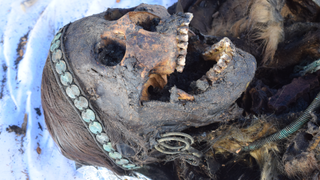
One of the last Siberian shamans was an 18th-century woman whose parents were related, DNA study reveals
By Kristina Killgrove published
A new DNA analysis of the mummies of historical Indigenous Yakuts reveals resistance to 17th-century Russian conquest.
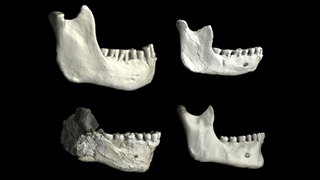
Last common ancestor of modern humans and Neanderthals possibly found in Casablanca, Morocco
By Kristina Killgrove published
A collection of bones from Casablanca holds important new clues to the origins of modern humans and Neanderthals.
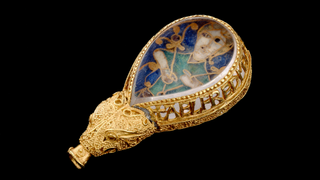
The Alfred Jewel: A 1,100-year-old treasure from England's first king that proclaims 'Alfred ordered me to be made'
By Kristina Killgrove published
This gold-encrusted jewel has an inscription revealing who made it.
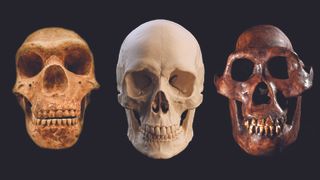
10 things we learned about Neanderthals in 2025
By Kristina Killgrove published
Findings about our extinct relatives, the Neanderthals, continue to surprise us, especially those from 2025.
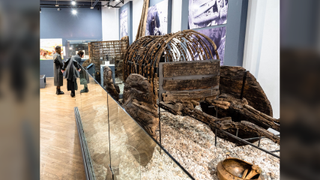
Lchashen wagon: A 3,500-year-old covered wagon that transported a deceased chief to the next world
By Kristina Killgrove published
This 3,500-year-old covered wagon is the best-preserved example in the world of this ancient form of wheeled transport.
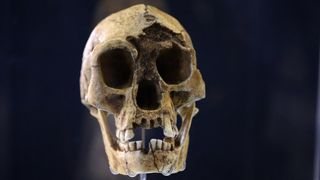
10 things we learned about our human ancestors in 2025
By Kristina Killgrove published
Findings about our human ancestors continue to surprise us, especially those from 2025.
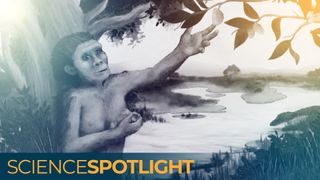
We now know much more about how our ancestor 'Lucy' lived — and died
By Kristina Killgrove published
Fifty years after a fossil skeleton of Australopithecus afarensis was unearthed in Ethiopia, we know so much more about how this iconic species lived and died.
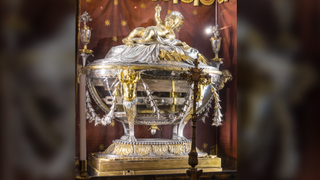
Reliquary of the Holy Crib: Remains of Jesus' manger from Bethlehem
By Kristina Killgrove published
Five pieces of wood in a silver-and-gold container at a basilica in Rome may be the remains of the manger Jesus was laid on when he was born.
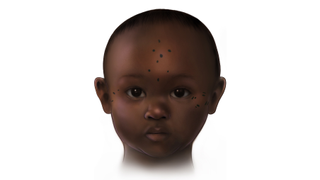
1,400 years ago, Nubians tattooed their toddlers. Archaeologists are trying to figure out why.
By Kristina Killgrove published
More than a dozen mummies of kids with facial tattoos were found at an archaeological site in Christian-era Nubia.
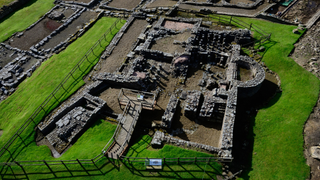
Diarrhea and stomachaches plagued Roman soldiers stationed at Hadrian's Wall, discovery of microscopic parasites finds
By Kristina Killgrove published
Analysis of latrine sediments at the Roman fort of Vindolanda has revealed that at least three parasites were widespread among Roman soldiers.
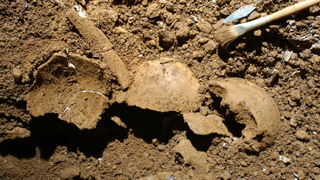
Oldest known evidence of father-daughter incest found in 3,700-year-old bones in Italy
By Kristina Killgrove published
Archaeologists have found the earliest DNA evidence to date of a father-daughter pairing.

Detectorists find Anglo-Saxon treasure hoard that may have been part of a 'ritual killing'
By Kristina Killgrove published
These Anglo-Saxon accessories were recovered from the side of a hill in England and may be from a hoard, a ritual deposit or a collection of stolen items.
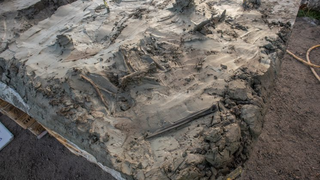
5,000-year-old dog skeleton and dagger buried together in Swedish bog hint at mysterious Stone Age ritual
By Kristina Killgrove published
Five millennia ago, ancient fishers buried a dog alongside a dagger in a lake bed. Archaeologists are trying to figure out why.
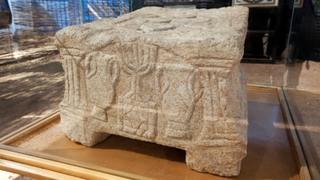
Magdala stone: 2,000-year-old carving from Jerusalem is world's oldest known depiction of a menorah
By Kristina Killgrove published
A pilgrim who visited the Second Temple in Jerusalem may have carved their memories into a limestone block for another synagogue.
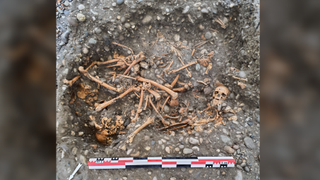
16th-century gallows and dozens of skeletons discovered in France
By Kristina Killgrove published
Archaeologists have identified a 16th-century gallows structure and nearly a dozen mass burial pits in Grenoble, France.

'They had not been seen ever before': Romans made liquid gypsum paste and smeared it over the dead before burial, leaving fingerprints behind, new research finds
By Kristina Killgrove published
Fingerprints on a Roman burial hold new clues to an unusual liquid gypsum funeral ritual.
Get the world’s most fascinating discoveries delivered straight to your inbox.
